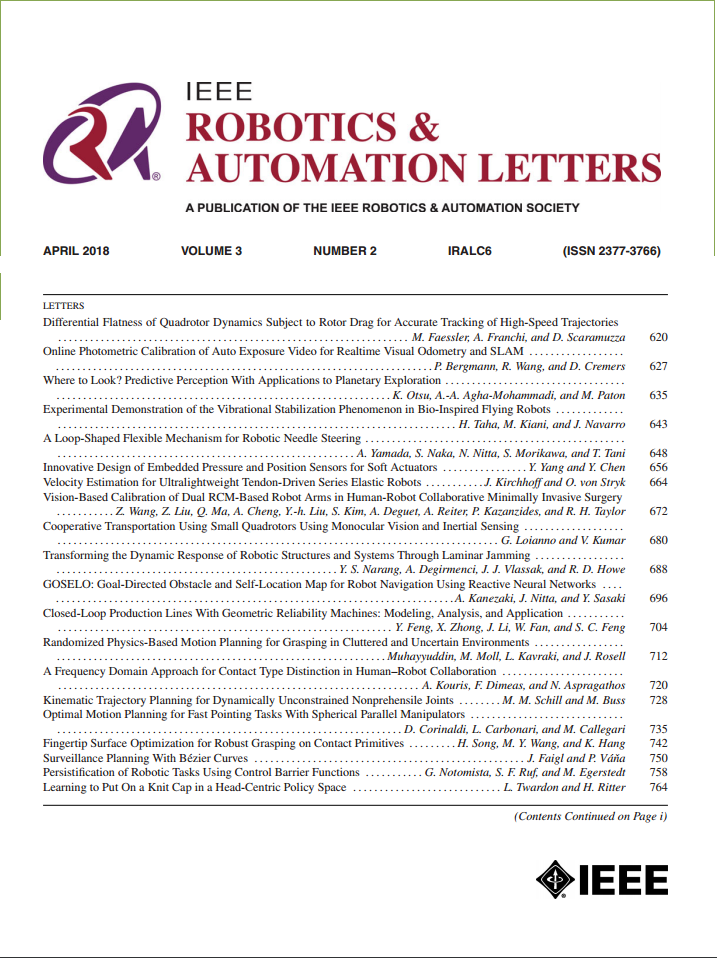基于细粒度时间尺度的Beta信誉改进人机协作中的信任估计
IF 5.3
2区 计算机科学
Q2 ROBOTICS
引用次数: 0
摘要
在与他人互动时,人类会根据感知到的信任来调整自己的行为。为了实现类似的适应性,机器人必须在与人类合作时,在足够细的时间尺度上准确地估计人类的信任。Beta声誉是一种流行的方法,用于形式化对人类信任的数学估计。然而,它依赖于二进制性能,它只在每个任务结束后更新信任估计。此外,手动制作奖励功能是构建绩效指标的常用方法,这是一项劳动密集型且耗时的工作。这些限制阻碍了在整个协作任务中以更细粒度的时间尺度有效地捕获持续的信任更改。因此,这封信提出了一个新的框架,用于在细粒度的时间尺度上使用beta声誉来估计人类的信任。为了实现beta信誉的粒度,我们利用连续的奖励值来更新任务的每个时间步的信任估计。我们使用最大熵优化构造一个连续的奖励函数,以消除对性能指标的繁琐规范的需要。该框架提高了信任估计的准确性,消除了手工制作奖励函数的需要,并朝着更智能机器人的发展迈进。本文章由计算机程序翻译,如有差异,请以英文原文为准。
Improving Trust Estimation in Human-Robot Collaboration Using Beta Reputation at Fine-Grained Timescales
When interacting with each other, humans adjust their behavior based on perceived trust. To achieve similar adaptability, robots must accurately estimate human trust at sufficiently granular timescales while collaborating with humans. Beta reputation is a popular way to formalize a mathematical estimation of human trust. However, it relies on binary performance, which updates trust estimations only after each task concludes. Additionally, manually crafting a reward function is the usual method of building a performance indicator, which is labor-intensive and time-consuming. These limitations prevent efficient capture of continuous trust changes at more granular timescales throughout the collaboration task. Therefore, this letter presents a new framework for the estimation of human trust using beta reputation at fine-grained timescales. To achieve granularity in beta reputation, we utilize continuous reward values to update trust estimates at each timestep of a task. We construct a continuous reward function using maximum entropy optimization to eliminate the need for the laborious specification of a performance indicator. The proposed framework improves trust estimations by increasing accuracy, eliminating the need to manually craft a reward function, and advancing toward the development of more intelligent robots.
求助全文
通过发布文献求助,成功后即可免费获取论文全文。
去求助
来源期刊

IEEE Robotics and Automation Letters
Computer Science-Computer Science Applications
CiteScore
9.60
自引率
15.40%
发文量
1428
期刊介绍:
The scope of this journal is to publish peer-reviewed articles that provide a timely and concise account of innovative research ideas and application results, reporting significant theoretical findings and application case studies in areas of robotics and automation.
 求助内容:
求助内容: 应助结果提醒方式:
应助结果提醒方式:


